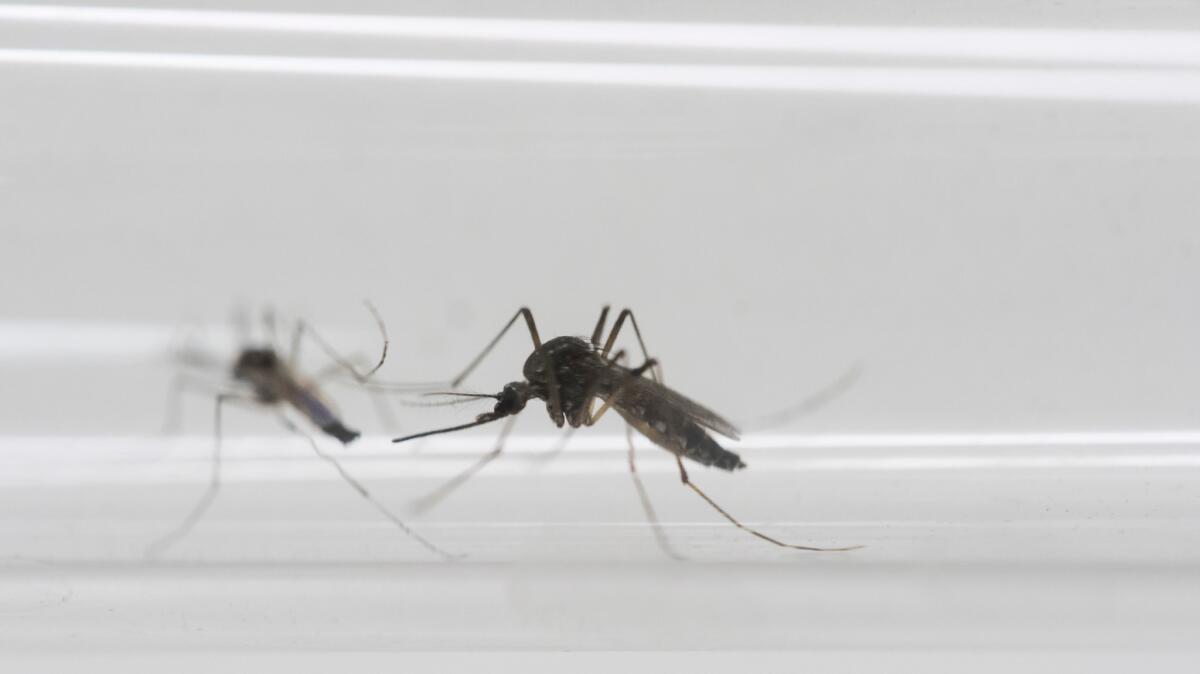Before the spread of the Zika virus, the Vatican allowed contraceptive use in limited situations

On his flight from Mexico back to the Vatican in February, Pope Francis made an unexpected comment about the Zika virus, saying that the outbreak — blamed for serious birth defects around the world — may justify the use of contraceptives.
A reporter had first asked if the church would allow an abortion as “the lesser of two evils” to avoid pregnancies complicated by the Zika virus. “It is a crime,” the pope responded. “It is to throw someone out in order to save another. That’s what the Mafia does.”
“On the other hand,” he continued, “avoiding pregnancy is not an absolute evil,” and, in extreme situations, the use of contraceptives could be justified, despite the church’s ban.
He noted the widespread rape of nuns during the during the Congo civil war in the 1960s. “Paul VI, a great man, in a difficult situation in Africa, permitted nuns to use contraceptives in cases of rape.”
The church has not formally sanctioned contraceptive use, but with the August start of the Olympics in Brazil — the epicenter of outbreak — it has offered the possibility of a solution.
I think he understands it’s not helpful to tell Catholics, ‘No, you can’t do that.’
— Aline Kalbian, professor at Florida State University
“I think he understands it’s not helpful to tell Catholics, ‘No, you can’t do that,’ said Aline Kalbian, a professor at Florida State University and author of “Sex, Violence & Justice: Contraception and the Catholic Church.” “That doesn’t really resolve their problem.”
Pope Francis’ short statement has echoed around the world, following the spread of the Zika virus, a disease linked to microcephaly, a condition in which infants are born with abnormally small heads that limit brain development. The virus is transmitted through mosquito bites and sexual contact. The World Health Organization has advised anyone living in or traveling to countries with known outbreaks to avoid having sex or getting pregnant.
Previously present in parts of Africa and Asia, the outbreak began in Brazil in May 2015. Brazil has registered close to 100,000 infections and several thousand cases of microcephaly.
Since 2015, the disease has spread through South America, Central America and parts of the Caribbean. No cases have originated in the U.S., although over 1,000 travel-related cases in the country have been reported by the Centers for Disease Control and Prevention.
The CDC has recommended that pregnant women stay away from the Olympics. Those wanting to get pregnant should wait at least eight weeks after visiting Brazil before having sex. Men who show some symptoms of Zika virus — rash, fever, joint pain — should wait six months before having sex.
The CDC urges the use of a condom to avoid transmitting the disease.
Those type of recommendations can run afoul of the Catholic Church’s teachings that generally bar the use of contraceptives, such as condoms, birth control or the morning-after pill. The purpose of sex is procreation, in the church’s view, and contraceptives foil that design.
The church, however, has several key exceptions.
Since 1957, it has allowed birth control pills as a way to regulate heavy menstrual bleeding or irregular cycles. Pope Paul VI’s 1968 encyclical “Humanae Vitae” outlines how “therapeutic means,” such as contraception, can be used to cure diseases, even if procreation would be limited.
For example, men can undergo radiation treatment for testicular cancer, even if they are left sterile. Women can undergo a hysterectomy for uterine or ovarian cancer, said John Grabowski, director of moral theology and ethics at the Catholic University of America in Washington.
NEWSLETTER: Get the day’s top headlines from Times Editor Davan Maharaj »
The church does not sanction the use of condoms to prevent the spread of HIV/AIDS. Theologians view using a condom to prevent infecting one’s partner as just a way to facilitate sex, not to further life, Grabowski said. Abstinence is the church’s recommended solution.
The church does allow emergency contraceptives in the case of rape. Catholic hospitals are authorized to treat victims of sexual assault with contraceptives to prevent unwanted pregnancies.
The role of contraception after a rape is not to prevent life, but to combat violence, Grabowski explained.
Pope Paul VI’s sanctioning of contraceptives during the Congo civil war is the best known example, although the truth of the decision is a bit “hazy,” he said.
Paul VI never gave any kind of formal approval allowing nuns in danger of sexual assault to use contraceptives, Grabowski said. Paul VI had made statements as a cardinal, but there was never a formal policy from the Vatican.
Kalbian said she also found no evidence of formal approval. “I’ve actually written about that incident and my first reaction was, wait a minute, this did not happen during the papacy of Pope Paul VI. It happened much earlier in the 1960s, probably under the papacy of Pope John XXIII,” she said.
Kalbian contacted nuns in different orders to see if they had information, but she said no one had knowledge of an official directive.
Kalbian and Grabowski said they don’t see Francis’ Zika comments changing church teachings. “The teaching about contraception is intimately connected to the church’s teaching about heterosexual marriage, about premarital sex. All these things make up a holistic view of what sex is about and what marriage is about,” Kalbian said. “It’s almost as if you start tinkering with one, then the whole edifice becomes kind of shaky, and I think that might be a problem.”
The change they have seen is in the pope’s tone. Kalbian described it as “very pastoral and compassionate,” as evidenced by Francis’ recent apostolic exhortation on marriage and the family, “Amoris Laetitia.”
“Most of these papal documents in the past about sexuality were more dogmatic and kind of harsh, but what you notice about Pope Francis, he was always very sensitive to the experience of individuals, and I think his response to the Zika virus was typical of that,” Kalbian said.
ALSO
The Zika crisis: How Congress abandoned its duty to govern
Brazil beefs up security for the Olympics after high-profile attacks
A woman spread Zika virus through sex in first documented case
More to Read
Start your day right
Sign up for Essential California for news, features and recommendations from the L.A. Times and beyond in your inbox six days a week.
You may occasionally receive promotional content from the Los Angeles Times.






